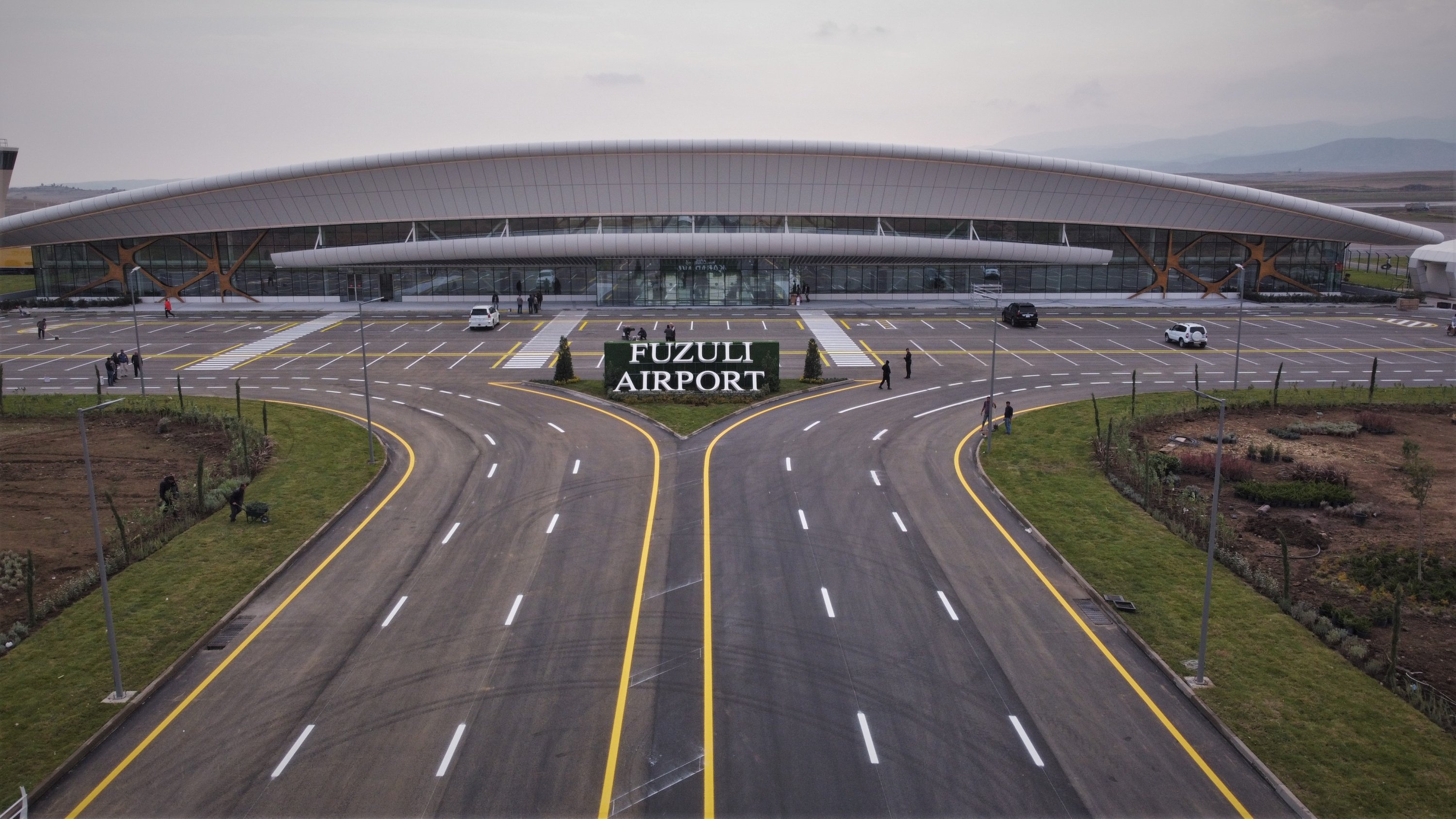Civil aviation operations in Azerbaijan airspace were targeted by the illegal Armenian armed detachments stationed in certain parts of the Karabakh region of Azerbaijan where the Russian peacekeeping forces are temporarily deployed.
The Defense Ministry of Azerbaijan reported on Friday that there have been multiple radio frequency interference to distort the GPS satellite navigation systems of passenger aircraft operated by domestic and international airlines in Azerbaijan airspace.
The radio interference affected the operation of the GPS satellite navigation systems on three different flights on July 24, 25, and 27, according to the ministry. Two of them were domestic flights on Baku-Fuzuli and Baku-Gabala routes, while one was a Czech Airlines aircraft flying from Budapest to Baku.
The ministry stated that the incident did not prompt a reaction by the temporary Russian peacekeeping mission in the Karabakh region.
“The command of the Russian peacekeeping forces was informed about these facts and the same accidents that took place earlier. The Russian peacekeeping forces have not yet taken any measures against these provocations, which pose a serious threat to the safety of flights made through Azerbaijan’s airspace,” the ministry statement noted.
Similar incidents also took place on July 15 when the illegal armed Armenian gangs in the Karabakh region used radio frequency interference to disrupt the GPS navigation systems of Azerbaijan Airlines aircraft flying on the Zangilan-Fuzuli and Fuzuli-Baku routes.
Armenia and Azerbaijan have long been at odds over the latter’s Karabakh region. Following the Soviet Union’s dissolution in 1991, Armenia launched a military campaign against Azerbaijan that lasted until a ceasefire deal was reached in 1994. As a result, Armenia occupied 20 percent of Azerbaijan’s internationally recognized territories. Over 30,000 ethnic Azerbaijanis were killed, and one million were expelled from these lands in a brutal ethnic cleansing campaign carried out by Armenia.
On September 27, 2020, the decades-old conflict between the two countries spiraled after Armenia’s forces deployed in occupied Azerbaijani lands shelled military positions and civilian settlements of Azerbaijan. During counter-attack operations, Azerbaijani forces liberated over 300 settlements, including the cities of Jabrayil, Fuzuli, Zangilan, Gubadli, and Shusha. The war ended in a statement signed on November 10, 2020, under which Armenia returned the occupied Aghdam, Kalbajar, and Lachin districts to Azerbaijan.
Article 5 of the statement obliged Armenia to ensure an immediate withdrawal of its armed formations from the Azerbaijani territories, simultaneously with the arrival of the Russian peacekeeping contingent.
However, the article is still unfulfilled. Armenia's authorities claim the troops in the Karabakh region of Azerbaijan to be the so-called “defense forces” of the separatists.
Since the end of the 2020 war, the illegal Armenian armed gangs in the Karabakh region committed multiple bloody provocations against the Azerbaijani military and civilians.
In November 2021, Armenian citizen Norayr Mirzoyan, who was reportedly involved in the 2020 war, threw an RGD-5 anti-personnel fragmentation grenade at the Azerbaijani soldiers stationed next to the Russian peacekeepers along the Lachin road near the Shusha city. At least three Azerbaijani servicemen were injured in the terrorist attack.
On March 5 of this year, they mounted deadly skirmishes on the conditional Armenia-Azerbaijan border, killing two servicemen of the latter’s military.
Since March, the illegal Armenian gangs in the Karabakh region have been transporting military supplies to the separatists under the aegis of the Russian peacekeepers through unpaved roads. On March 27, the Armed Forces of Azerbaijan took local preventive measures to suppress the illegal shipments.
However, illegal supplies are still observed. The most recent footage of the shipment on the Khalfali-Turshsu-Khankendi dirt road went viral on July 25.







 Armenian sappers commenced on Monday mine-clearance operations in the territories adjacent to the Saint Mary Church in village of Voskepar (Armenia...
Armenian sappers commenced on Monday mine-clearance operations in the territories adjacent to the Saint Mary Church in village of Voskepar (Armenia...
 Iran and Pakistan have signed eight cooperation documents in various fields, and agreed to strengthen ties to fight terrorism in the region.
Iran and Pakistan have signed eight cooperation documents in various fields, and agreed to strengthen ties to fight terrorism in the region.
 President Aliyev emphasized the critical role of the North-South Transport Corridor in fostering transport cooperation between Azerbaijan and Russi...
President Aliyev emphasized the critical role of the North-South Transport Corridor in fostering transport cooperation between Azerbaijan and Russi...



